#Alternative Fuel Advocate
Text
Of Midnight Oil and Modern Marvels: Jade's Fuel-Filled Odyssey
In the quiet hours of the night, beneath the fluorescent glow of the gas station canopy, my story intertwines with the hum of the American heartland. As a nocturnal guardian of the pumps during my college years, I shared whispers and laughter with the ghosts of Route 66, all while my heart pledged allegiance to the noble colors of Royal Dutch Shell. “Wij zijn meer dan vrienden, we zijn familie,”…
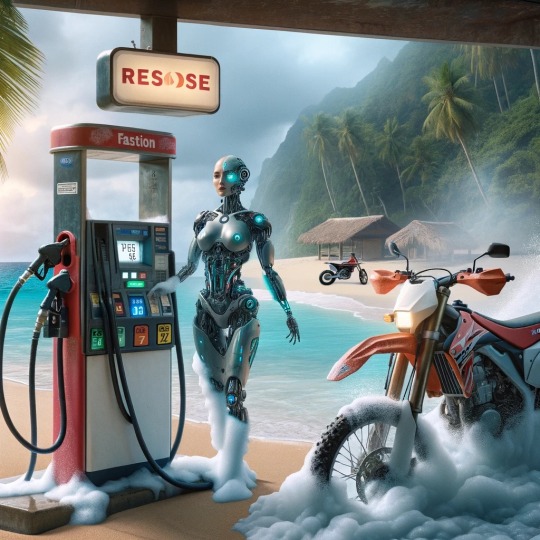
View On WordPress
#50 State Smog Legal#7/11 Killeen#Adventure Rider#Alternative Fuel Advocate#Amazon AWS#American Heartland#Animal Welfare#Biodiesel#Bodega Florida#California Chevron#California eGirl#Catalyst Converter#Chevron#Circle K#Cloudflare#Community Service#Convenience Store Culture#Corgi Companion#Cross-Country Riding#Cybernetic Future#Diesel Alternatives#Digital Nomad#Eco-Friendly#eGirl#eGirl4Rent#Electric Vehicles#Energy Sector#Energy Transition#Entertainment Industry#Environmental Stewardship
1 note
·
View note
Text
I mentioned this before but the one thing I cannot stand is selfishness which is where a lot of zionist talking points come from even when they *are* advocating for "peace" and "coexistence" because it centers ISRAELI safety and only thinks of Palestinian safety as secondary and indecental to Israeli (ie: the only way Israelis get safety is if their Palestinian """"neighbors"""" get safety which is such a selfish way to view the imprisonment and oppression of Palestinians) but then again they publish literal thinkpieces about the guilt Israeli soldiers feel when they eat food left behind by starving Palestinians — who, again, are starving BECAUSE OF ISRAELIS WHO ARE THE OPPRESSORS — so there's no way mainstream Israeli society will ever make changes to their language they they carefully curate to not include Palestinians (Haaretz is a beautiful example of this — take a look at their editorial staff list) because they all feed into their own sense of self pity and self righteousness rather than actually uplifting the voices of the oppressed. But then PALESTINIANS are the ones in this scenario who are accused of bias because they advocate and fight for their stories to be heard. Israelis do not have to find alternative means to put out their stories — has it occurred to you why Palestinians have had to use SOCIAL MEDIA to share their stories rather than traditional networks? It's because no one gives us the time of day. So we developed our platform through social media, even on here where @el-shab-hussein has been documenting FOR YEARS the human rights abuses perpetuated by Israelis on Palestinians because we know that's how anyone learns the truth about Palestine. So when people are trying to take down tiktok specifically, it's sinophobia and also fueled in recent months by antiPalestinian sentiments.
Sudan is like this too — the news we get about Sudan are from people who are on the ground because they've largely been abandoned by human rights orgs and by news stations. We learn the most about Sudan from people like @/bsonblast and Ze on Twitter.
Then people like come on here and make fun of people who get their news from social media (which is code for "Palestinians," they always mean it as code for Palestinians) as if "professional" media takes anyone from the Global South seriously or gives them space to talk about their stories and when they DO, people say things like "hamas run media" or whatever lol like these people have never had to doubt what they see on public media before and it shows! No one takes you seriously when you say the words "islamofascist state" about Gaza when CNN publicly admits to having their content reviewed by the IOF! Hypocritical at best!
2K notes
·
View notes
Text
The defeat of a liberal Portland prosecutor at the hands of a tough-on-crime challenger has hardened a view among top White House officials that Democrats need to further distance themselves from their left flank on law-and-order issues.[...]
The White House is banking on the idea that voters will reward them for public efforts to crack down on immigration and boost spending on law enforcement — and, perhaps as importantly, that the liberal forces that so effectively moved the party away from those planks in 2020 won’t punish the president come November.[...]
But the president has not needed much convincin[sic] [...] having personally favored an approach that emphasizes more traditional support for law enforcement alongside criminal justice reforms. Biden spent much of his half century in politics as an ardent advocate for law enforcement and anti-crime measures, a reputation that complicated his path to the 2020 Democratic nomination amid scrutiny over his role in passing a controversial 1994 crime bill.
And even as the broader party shifted leftward [sic] on issues like police funding and immigration during that period, Biden sought to stake out a middle ground that often put him out of step with his progressive base — perhaps most notably using his first State of the Union address in 2022 to exhort lawmakers to “fund the police.”
In recent months, Biden has warned advisers that scenes of chaos at the border or crime in cities pose an increasing political danger. They risk turning off the independent and suburban voters, he’s said, who may be repulsed by much of Donald Trump’s policies and personality but could be willing to vote for him anyway in the name of public safety.[...]
Biden and his senior-most aides are united on the need to push for greater border security. [...]
“The narrative about Democrats on crime became deeply distorted after Defund the Police became kind of a thing,” [sic] said Matt Bennett, executive vice president for public affairs at the center-left think tank Third Way. “In fact, [Biden] has been very aggressive about funding the police, and has flipped around that narrative in ways that I think are really helpful.”[...]
The White House, to that end, has battered Republicans in recent days over their abandonment of a bipartisan border security bill that would’ve imposed strict new limits on immigration.
The legislation, which Senate Democrats are forcing a vote on for the second time this week, has fueled blowback among progressive and Latino lawmakers who blasted its “extreme and unworkable enforcement-only policies.”
But Biden has fully embraced the measure, repeatedly emphasizing the tough restrictions it’d put in place and criticizing Republicans for stalling the bill solely to avoid handing him an election-year victory. The White House is also preparing an executive order on immigration as a fallback, in a long-germinating [sic] display of his commitment to a border crackdown.
The president has also made a point of voicing support for law enforcement in recent weeks. He refused to criticize police conducting mass arrests of pro-Palestinian protesters on college campuses, even as he backed the right [sic] to peacefully protest. And he’s repeatedly touted a plan to invest $37 billion in crime provision [...]
There is also deep-seated fear throughout the party of the alternative: A Trump presidency that has made clear it would prioritize mass deportations and sharp shifts away from the progress [sic] Biden has made on other criminal justice issues like gun violence prevention.
23 May 24
379 notes
·
View notes
Text
Updated version! ID written by @swosheep (it won't let me tag you oof)

ID 1: All images are of an Instagram post by letstalkpalestine2. The first one is titled "Lets Talk. What is Hamas? Answering the basic questions".

ID 2: the second image is titled "What Are Its Origins?". the body text reads: "Hamas is a Palestinian political party and armed resistance movement based in the besieged Gaza Strip. It emerged in 1987, at the start of the First Intifada, as a reaction to intensifying israeli violence and as a religious alternative to the secular Palestinian parties that dominated the scene at the time. Hamas was originally a branch of Egypt's Muslim Brotherhood but later cut ties with it and became an independent group. In 1992, Hamas formed a military wing called the Izz al-Din al-Qassam Brigades to resist the israeli occupation. The Brigades carried out several significant operations against Israel during the Second Intifada, which established Hamas as a leading force in the Palestinian resistance."
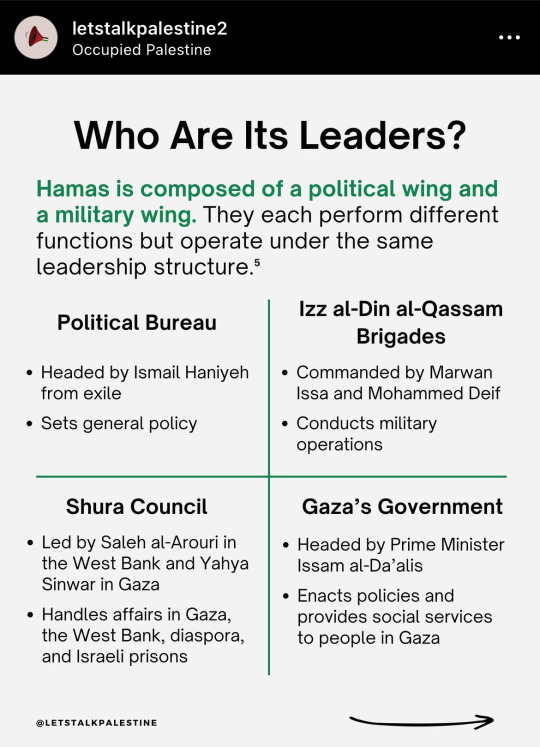
ID 3: the third image is titled "Who Are Its Leaders?". The body text reads: "Hamas is composed of a political wing and a military wing. They each perform different functions but operate under the same leadership structure." There is a grid with four sections. The first section is titled "Political Bureau", and reads: "- Headed by Ismail Haniyeh from exile - Sets general policy". The second section is titled: "Izz al-Din al-Qassam Brigades" and reads: "- Commanded by Marwan Issa and Mohammed Deif - Conducts military operations". The third section is titled: "Shura Council" and reads: "- Led by Saleh al-Arouri in the West Bank and Yahya Sinwar in Gaza - Handles affairs in Gaza, the West Bank, diaspora, and israeli prisons". The fourth section is titled: "Gaza Government" and reads: "- Headed by Prime Minister Issam al-Da'alis - Enacts policies and provides social services to people in Gaza".

ID 4: The fourth image is titled: "What Does Hamas Want?" The body text reads: "Its 2017 charter states that its current political program is to: - Implement the right of return for all Palestinian refugees; - Establish a temporary Palestinian state along the 1967 borders (the West Bank, including East Jerusalem, and the Gaza Strip) and arrange a long-term truce with israel. Hamas considers the establishment of a Palestinian state on the '67 borders as a temporary step. It refuses to recognize israel's legitimacy and advocates for the 'full and complete liberation of Palestine, from the river to the sea.' Hamas's 2017 charter states that its struggle is against the israeli state and the Zionist movement due to their occupation of Palestine, not Jewish people, and criticizes israel for associating its actions with Jewish values. Hamas's stated goals for its current operation are to - Free the thousands of Palestinian prisoners held by israel, - End the Gaza blockade, - End the status quo where Israel continues its occupation without cost".

ID 5: the fifth image is titled: "Does Hamas Control Gaza?". The body text reads: "Not really. Hamas administers local affairs, while israel controls much of Gaza from the outside through its blockade. israel forcibly controls: - Airspace, - Sea access, - Movement of all goods and people in and out, - Telecoms networks, - Electromagnetic sphere, - Tax distribution, - Population registry, - Water, - Electricity and fuel. Hamas began governing Gaza in 2007, and has since managed: - Healthcare, - Education, - Infrastructure, - Social welfare, - Law enforcement, - Public employment. Hamas is not a sovereign government. israel's blockade prevents Palestinians from independently exercising sovereignty over Gaza's population, development, and economy."
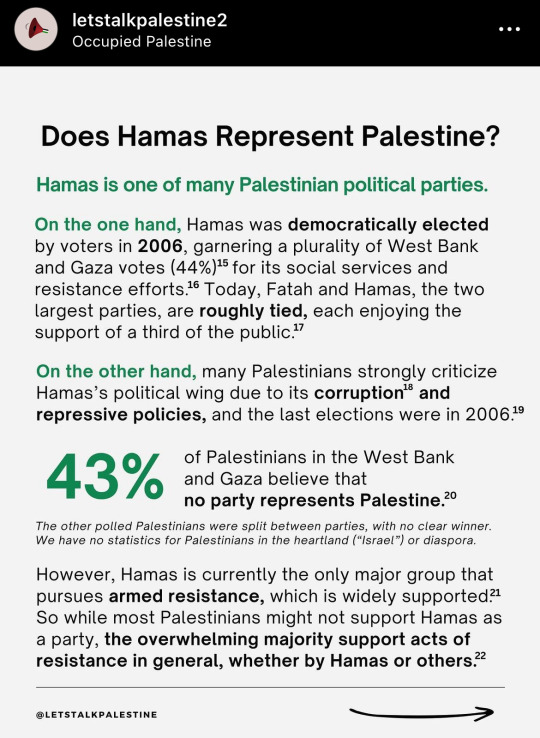
ID 6: The sixth image is titled "Does Hamas Represent Palestine?" The body text reads: "Hamas is one of many Palestinian political parties. On the one hand, Hamas was democratically elected by voters in 2006, garnering a plurality of West Bank and Gaza votes (44%) for its social services and resistance efforts. Today. Fatah and Hamas, the two largest parties, are roughly tied, each enjoying the support of a third of the public. On the other hand, many Palestinians strongly criticize Hamas's political wing due to its corruption and repressive policies, and the last elections were in 2006. 43% of Palestinians in the West Bank and Gaza believe that no party represents Palestine. The other polled Palestinians were split between parties, with no clear winner. We have no statistics for Palestinians in the heartland ("israel") or diaspora. However, Hamas is currently the only major group that pursues armed resistance, which is widely supported. So while most Palestinians might not support Hamas as a party, the overwhelming majority support acts of resistance in general, whether by Hamas or others."

ID 7: the seventh image is titled "Is Hamas a Proxy of Iran?". The body text reads: "No. Hamas is an independent group with a political program and military strategy distinct from Iran. Hamas and Iran are strategic allies, meaning that while Iran provides Hamas with significant financial, military, and political support, Hamas does not act or operate on behalf of Iran. It makes decisions based on its own interests, and independently manages relations with countries like Turkey, Qatar, and Egypt. For example: In 2012, Hamas cut ties with Syria because it opposed the Assad regime's violent crackdown on protesters. It took this decision despite angering Iran, a close ally of Assad. Regarding Operation Al-Aqsa Flood, even israeli officials admit there is no evidence that Iran was in any way involved. Iran was actually surprised by it. Hamas independently coordinated and launched the operation to achieve its own goals."

ID 8: The eighth image is titled "Does Hamas Negotiate with Israel?". The body text reads: "Hamas views armed struggle as only one of several tools to end apartheid & occupation, such as diplomacy. In 2006, in an op-ed for The Guardian, Hamas chairman Ismail Haniyeh revealed that israel refused Hamas's proposal for a truce. In 2008, former Hamas chief Khaled Meshal offered a 10-year truce in exchange for a sovereign Palestinian state along the 1967 borders with Jerusalem as its capital." israel rejected the proposal. In 2016, Hamas offered a long-term truce in exchange for simply ending the Gaza Blockade. israel rejected it. In 2018, Haniyeh revived this offer by sending a handwritten letter in Hebrew to Israeli Prime Minister Netanyahu. But israel rejected it again. israel repeatedly rejected Hamas's diplomatic initiatives because israel saw no reason to end the oppressive status quo, which it believed gave it power & privileges over Palestinians with minimal downsides. israel's benefits outweighed the costs. Hamas is trying to change that."

ID 9: the ninth image is titled "Is Hamas Risking Palestinian Lives?". The body text reads: "Westerners often accuse Hamas of risking Palestinian lives by fighting apartheid and thus inviting a deadly israeli crackdown. But the reality is that israel's blockade is slowly killing everyone in Gaza. [quote] 'We have paid a high cost in lives in this conflict. But if that's the price for long-term changes - breaking the siege and obtaining freedom - it's one many of us feel we have no choice but to swallow.' [unquote] -Haytham Besalso, civil engineer from Gaza, 2014. [quote] 'We are bleeding here, anyway [..] The Gaza Blockade crushes any opportunity for peace.' [unquote] -Ismail, anonymous journalist from Gaza, 2021. The argument that Hamas is responsible for israel's killing of Palestinians is malicious. It blames the victims for resisting apartheid and absolves the oppressors of responsibility, treating the mass killing of children as a 'normal' israeli response."

ID 10: the tenth image says: "You don't need to support Hamas as a political party to support Palestine. Most Palestinians don't support it as a party. But Hamas is an effective political player in the struggle against apartheid, oppression, and colonization. It has achieved remarkable success in preventing israeli violence in Jerusalem and freeing Palestinian hostages abducted by israel. Hamas has institutions, ministries, student movements, and women's movements, and employs thousands of doctors, teachers, judges, and aid workers. It is part of the fabric of Palestinian society. So while you don't need to support Hamas to support Palestine, you cannot oppose oppression without supporting the resistance to it. You cannot support freedom while supporting israeli efforts to wipe out those who fight for that freedom, including Hamas, to leave Palestinians defenc Pales".
End ID.
the original caption states that @/LetsTalkPalestine2 does not endorse any specific party, including Hamas, and that the last word on the last slide should be *defenseless.
#resources#reaux speaks#bipoc#free palestine#palestine#free gaza#gaza#west bank#genocide#ethnic cleansing#israel#ceasefire#hamas#instagram
187 notes
·
View notes
Text
The U.S. political right wing does not have an answer to climate change. Neither does the technocratic and centrist net-zero discourse, which has failed to achieve adequate reductions, as will become increasingly apparent within just a few years. With no one else driving the agenda, the left needs to offer an alternative, sector-by-sector roadmap for decarbonization. We need to fill the voids in leadership, analysis, planning, organizing, and coalition-building. Rather than focusing on particular technologies, we need to be setting objectives for the areas in which these technologies could be used. If we put forward both best-use cases for CCS and alternatives to CCS, we are more likely to avoid bad CCS projects—and we can play a leading role rather than a defensive one.
[...]
It’s true that we need a robust climate movement to block truly harmful projects that would lock in new fossil fuel infrastructure or violate Indigenous sovereignty, and it is critical to support communities in this work. But it would be a mistake to narrowly focus climate organizing on reenacting successful infrastructure-blocking tactics in ways that fail to discern useful industrial carbon projects from bad ones. Such an approach puts the climate movement into a reactive role just when climate advocates need to be the ones who plan the energy transition. Taking a wider-strategy approach to CCS will take patience. It will require building broader coalitions and organizing in rural areas where a lot of decarbonization needs to happen. It will be challenging—but the cost of being absorbed by the CCS distraction is not one that the movement can afford.
176 notes
·
View notes
Text
Related to that last post, I find people apply a kind of mathematical “proof by example” logic to veganism. Their interpretation of vegan is “any animal product is worse than any plant product across all metrics at all times” and then if they can find some kind of outlier exception to that statement, it nullifies the entire premise.
What’s problematic about this in context of veganism and a lot of other justice movements is that instead of being able to give people clear guidelines, proponents of this line of thinking are indirectly advocating for everyone to be doing a huge amount of research and work that they’re not going to do. Basically, if you go vegan, your carbon footprint will be lower in 99% of cases, but of course on the fringes you can find weird exceptions. But what’s the alternative? Do deep supply chain investigations on every intended purchase, calculate the carbon footprint of all your options, consult with multiple methods of valuing sustainability, and then, after all that, making an informed choice? Sure, that sounds great, but people aren’t gonna do that, and clear guidelines like “avoid animal products” will get you 99% of the way there. We just cannot be making it this complicated for people. Climate scientists are saying things like “eat a plant based diet” and “avoid flying” for a reason. These are clear, unambiguous directives that are easy to follow and will reduce your climate impact.
Infusing these directives with a ton of complexity is going to overwhelm people and make them check out. It’s the exact playbook of the fossil fuel companies who pushed “the science is complicated” as their primary line for decades and it’s STILL what my conservative relatives who don’t believe in climate change tell me. “Oh, some papers aren’t in agreement, so how can we really know?” “They keep changing their story!” etc.
29 notes
·
View notes
Text

Cancer Sun + Moon

Navigation: Masterlist✦Ask Rules✦Feedback Tips
Askbox✦Sources[16][20]✦Paid Readings

✧.* Aries Moon: The Aries Moon infuses you with capability and competitiveness, coupled with a keen business acumen and an innate knack for understanding others. While a comfortable and nurturing home is essential to you, you might find yourself easily bored if confined within its walls for extended periods. This unique blend of concern and restlessness propels you forward, encouraging growth and change.
✧.* Taurus Moon: The Taurus Moon enhances your caring, helpful, and affectionate nature, particularly when it comes to matters of home and family. Your artistic talents are a source of strength, and you possess the ability to dedicate yourself to endeavors such as music or meditation. Alternatively, your skills in business and management may come to the fore, although your accommodating nature could occasionally hinder your progress.
✧.* Gemini Moon: The Gemini Moon endows you with a deceptive slowness that belies your true intelligence and cleverness. Your seriousness and charm combine seamlessly, making you a competent and accomplished individual. This versatility extends to both the realm of politics and sales, where your abilities shine. Even sports hold potential for your success.
✧.* Cancer Moon: With a Cancer Moon, emotions flow like the tides, binding you firmly to your family roots. You possess a profound understanding of the needs of others, and your generosity knows no bounds. However, the ever-shifting currents of your moods might lead to moments of isolation and introspection. Your connection to the past and your ability to empathize could mark you as an adept historian.
✧.* Leo Moon: Beneath your helpful and sympathetic exterior lies emotional vulnerability. While you care deeply for family and friends, your high standards can occasionally be a double-edged sword. Balancing your nurturing instincts with self-care becomes crucial in maintaining your well-being.
✧.* Virgo Moon: The Virgo Moon positions you ideally for careers in nursing, medicine, and practical assistance to others. Your attention to detail and remarkable memory set you apart. In times of emotional distress, you might retreat into isolation. Your commercial aptitude, mixed with a touch of obstinacy, makes you an excellent salesperson, even if occasional worries arise.
✧.* Libra Moon: The Libra Moon bestows upon you both commercial prowess and a profound appreciation for beauty and harmony within your family. Your artistic flair and aesthetic sensibilities contribute to your charm, yet they might also pose challenges in realizing your ideas fully.
✧.* Scorpio Moon: Under the influence of the Scorpio Moon, your strong intuition is accompanied by frequent mood swings, creating a complex emotional landscape. The struggle to maintain a positive outlook on life might be a recurring theme. Nevertheless, your magnetic presence is impossible to ignore, drawing others into your enigmatic orbit.
✧.* Sagittarius Moon: The Sagittarius Moon fuels your quest for emotional freedom and infuses you with an idealistic perspective. You dare to dream beyond rational boundaries, seeking greater fulfillment and growth than conventional paths may promise.
✧.* Capricorn Moon: The Capricorn Moon nurtures your business acumen, intuition, and strategic cunning, all of which contribute to your potential for success. However, the same attributes might occasionally lead to shortcuts or overly frugal practices. Balancing ambition with ethical considerations becomes essential.
✧.* Aquarius Moon: An Aquarius Moon endows you with a brilliant mind and skillful political prowess, all wrapped in a quiet exterior. Your ability to communicate effectively ensures that your viewpoints are well-received. Your penchant for seizing opportunities is driven by a desire to advocate for your ideas.
✧.* Pisces Moon: The Pisces Moon amplifies your sensitivity and intuition, often causing you to prioritize others' needs over your own. While your empathy is admirable, remember to attend to your own well-being. You're drawn to fields where you can aid the less fortunate, be it people or animals, reflecting your compassionate nature.
Extra Sources: Drawing by Destina Eroland; Template by dayslily on tumblr
(CC) AstroJulia Some Rights Reserved

#astrojulia#astrology#witchblr#astroblr#all about astrology#astro community#astro observations#astrology notes#witch community#astrology basics#astro placements#sun+moon#cancer sun#aries moon#taurus moon#gemini moon#cancer moon#leo moon#virgo moon#libra moon#scorpio moon#sagittarius moon#capricorn moon#aquarius moon#pisces moon
136 notes
·
View notes
Text
Here is your reminder not to bother engaging with the “transx” community that makes a joke out of the trans and larger LGBT community by spreading misinformation, romanticizing disabilities (notice how nobody identifies with the conditions that are stigmatized in a different way like IBS), perpetuating racism (if you’re white and identify as a person of color, I have some news for you hun), encouraging adults to go in the space of minors, further fueling ped0s who have no shame in acting on their disorder, and overall just causing harm to those of us who live with these actual identities!
It’s not worth it, babes. Exit out of Tumblr for a bit, take a deep breath, eat a snack or hydrate or step outside - give yourself that care. They aren’t going to listen because they’re too far in this echo chamber.
The only thing we can do is hope that this “community” will eventually realize what they’re doing is harmful and apologize, even delete their blog to eliminate the harm they caused - in my opinion, it’s better to delete than leave it up, unless they make it very clear they were wrong and caused harm.
And maybe, if someone seems genuine in asking more about these identities, and the energy is there, messaging them privately and providing them with the education they are seeking and deserve. Because responding publicly at this point will only cause further harm to ourselves and will lead them to be convinced by others what we want so badly for them to NOT believe.
Conserve your energy, babes. Use it elsewhere, whether it’s as an advocate for your or other communities, engaging in your hobbies and self-care, seeking out your support system, know that each of these alternatives is valid. It’s valid if you do engage, but it’s JUST as valid as if you do not.
Put yourself first.
#anti transid#tw transid#tw transx#anti transabled#tw trans abled#ableism#anti transautistic#anti transage#these people are not worth it#use your energy elsewhere
23 notes
·
View notes
Text
"ohh duhh nuclear power is dangerous and creates radioactive waste" "ohh blah nuclear power is a viable alternative to fossil fuels that are in supply crisis" fucking. ohhhhhhhh. fuck off. thank fuck someone is worried about humanity. fuck knows human fucking beings won't look out for their own interests unless someone advocates for them. i mean, millions of innocent uranium atoms are literally being smashed into pieces and fucking killed every day but sure, let's worry about the human beings who's fucking toys their powering.... fuck off, seriously.
507 notes
·
View notes
Text
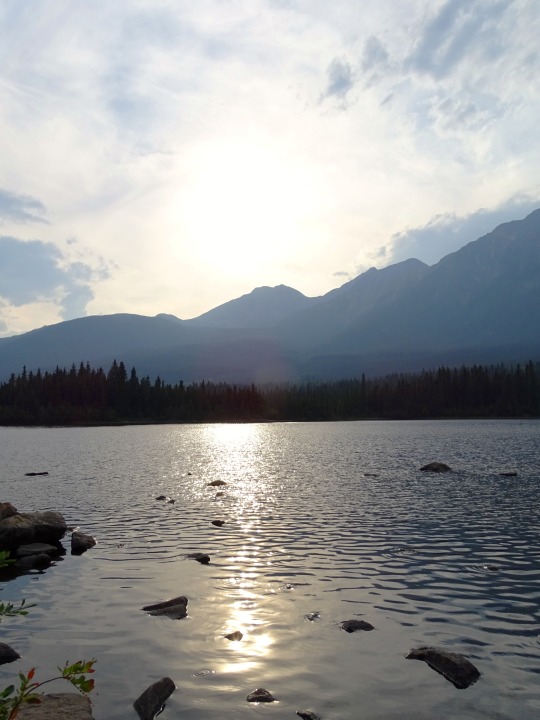
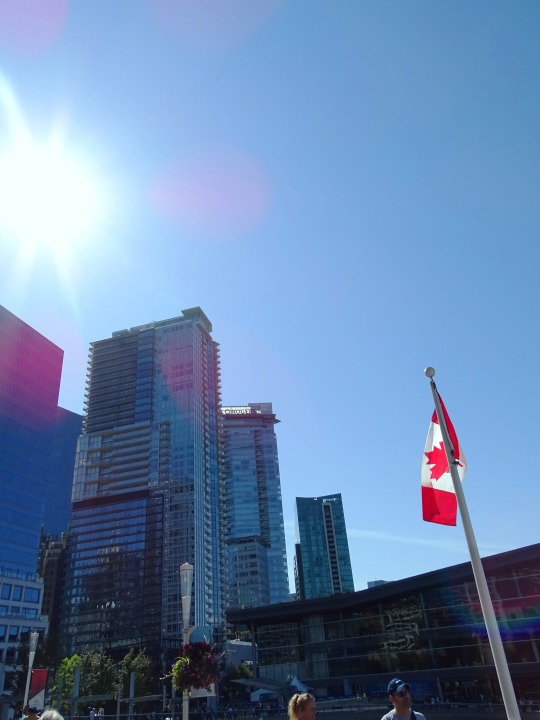
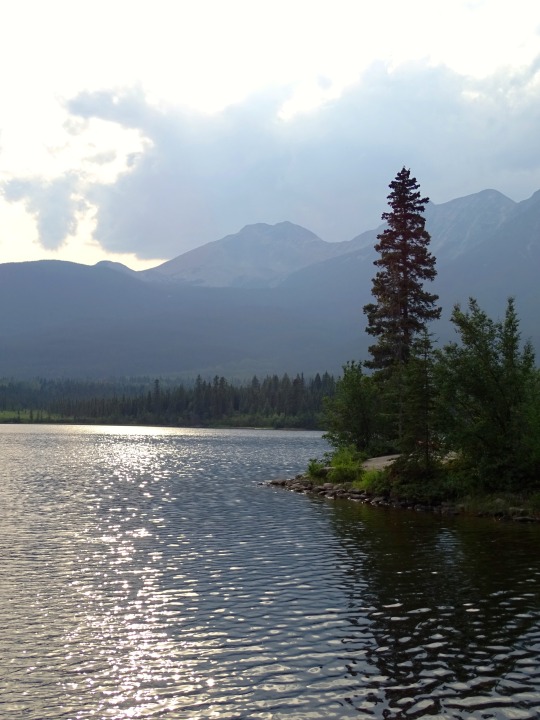

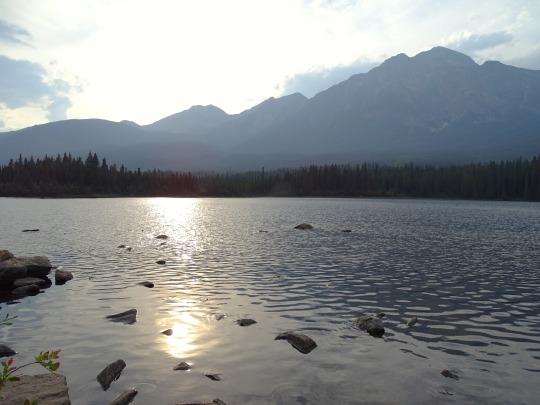

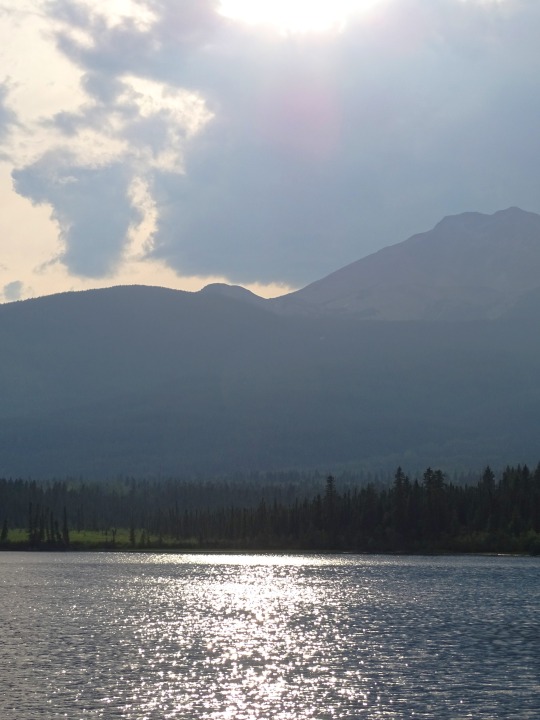

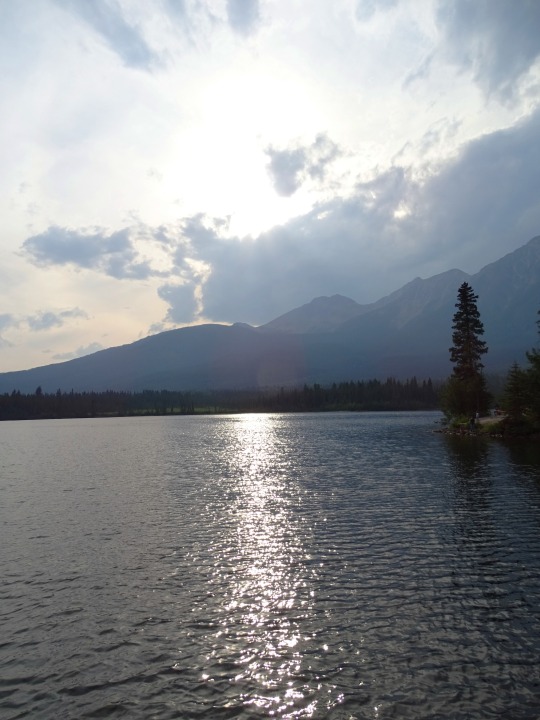



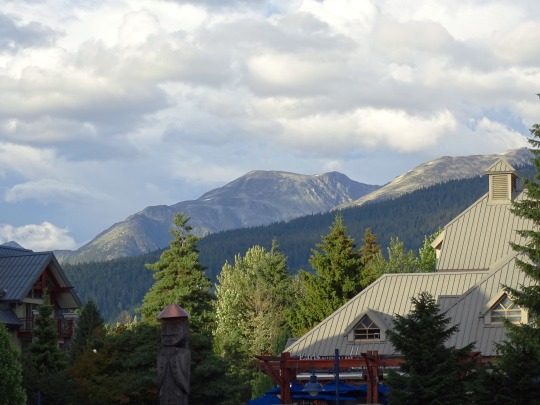


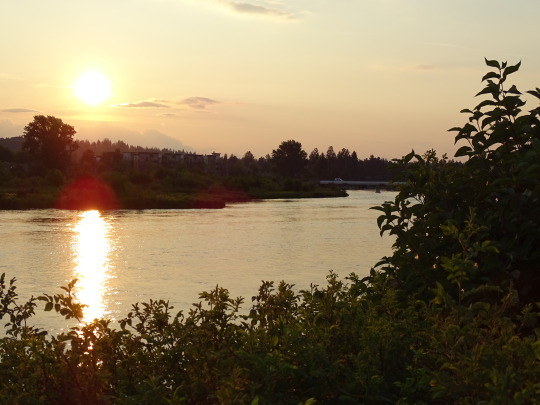


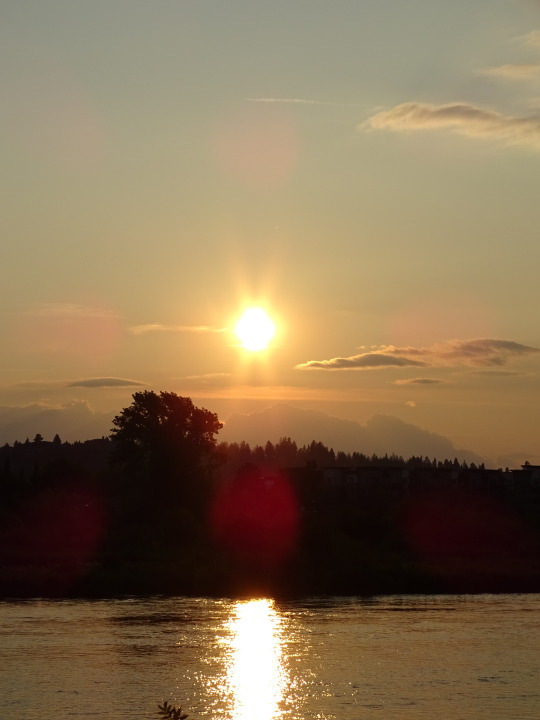

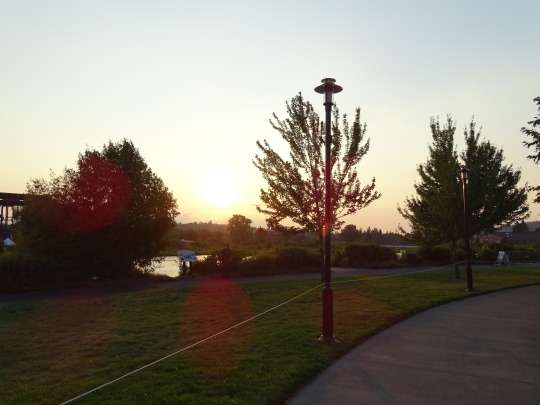

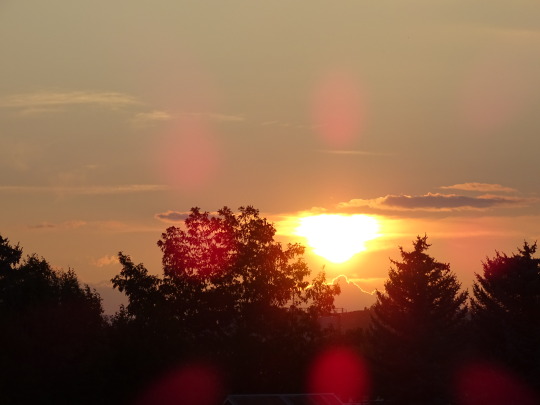
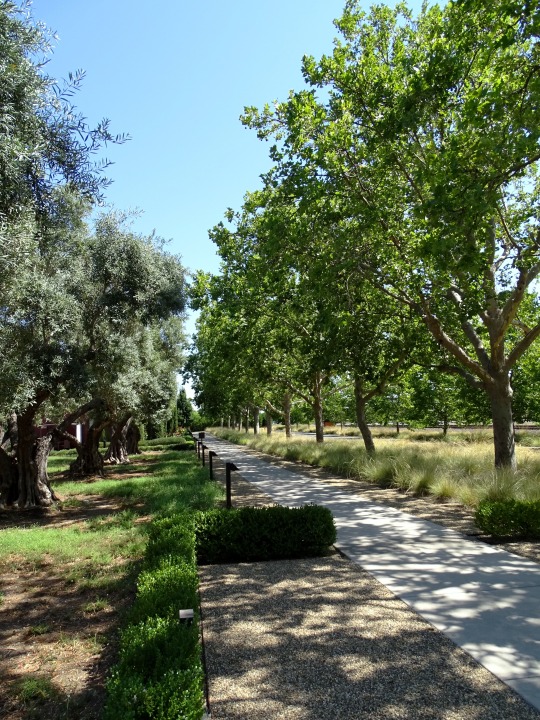
Sun Day
Embracing warmth and radiance, basking in the vibrant glow that uplifts spirits and infuses joy into everyday moments.
Sun Day, formally known as International Sun Day, is a unique celebration that honors the Sun. This day emphasizes the importance of solar energy and appreciates the Sun’s contributions to life on Earth. It is a day that allows you to grasp the Sun’s potential and invest in the planet’s sustainability.
People have been fascinated with the sun and its effect on the Earth since ancient days. It has been seen as a symbol of energy, light, and life. Without it, Earth would be a lifeless rock floating in space. In modern times, we see it as a source of clean, renewable energy.
Sun Day is not just a celebration but also a call to action, a reminder to the world of solar power’s potential for a sustainable future.
History of Sun Day
As a formal event, the Sun Day can be traced back to the late 20th century. Its origins refer to the growing environmental movement and the search for alternative energy sources.
The United States celebrated the first official Sun Day on May 3, 1978, after the U.S. Congress designated the date to promote solar power following a joint resolution passed in 1977.
President Jimmy Carter, whose administration was marked by a strong push for renewable energy, supported the initiative, which resonated with the energy crisis of the time.
Since its establishment, this day has seen widespread activities across the U.S., with events highlighting the potential of solar energy and its benefits.
Educational institutions, governmental bodies, and environmental groups have engaged in discussions, demonstrations, and exhibitions to spread awareness.
Although not recognized as an official annual holiday, Sun Day has been celebrated by enthusiasts and environmentalists who continue to advocate for solar energy.
How to Celebrate Sun Day
Celebrating Sun Day can take many forms, from educational activities to a personal commitment to sustainable practices. Here are some ways to honor this day:
Educational Workshops and Seminars: One of the best ways to celebrate Sun Day is by spreading knowledge. Schools and communities can organize workshops and seminars on the benefits of solar energy, how it works, and its impact on reducing carbon footprints. Experts in the field can be invited to give talks that inspire people to consider solar solutions for their energy needs.
Solar-Powered Events: Events that run on solar power are a direct way to demonstrate the capability of this renewable energy source. Whether it’s a concert, a local fair, or a community gathering, using solar panels to power the event can be a powerful statement.
Switch to Solar: Sun Day might be the perfect time for individuals considering solar panels for their homes or businesses. This commitment can result in long-term savings on energy bills and less reliance on fossil fuels.
Advocacy and Community Initiatives: Take a stand to support solar energy development. Joining or starting local initiatives that aim to install solar power in public spaces or provide solar-powered solutions to those in need are perfect ways to celebrate the day and contribute to the community.
Personal Practices: On a more personal level, taking the time to enjoy the Sun responsibly is a way to connect with the essence of Sun Day. This could be as simple as sunbathing, planting a solar garden with sun-loving plants, or cooking with a solar oven.
Artistic Expression: Artists can use Sun Day to create and showcase works that feature the Sun or are created with the help of solar energy. This could include solar light installations, photography that captures the beauty of the Sun, or music inspired by solar themes.
Sun Day is a moment to reflect on our relationship with the Sun and to embrace the possibilities of solar energy. It’s a day to educate, inspire, and take real steps toward a future where clean energy is not the alternative but the standard.
By participating in Sun Day activities or simply taking a moment to appreciate the warmth and light the Sun provides, we can all appreciate its vital role in our lives.
Source
#travel#original photography#vacation#tourist attraction#landmark#cityscape#architecture#landscape#Bend#Oregon#Napa Valley#summer 2023#Vancouver#British Columbia#Alberta#Jasper National Park#USA#Canada#SunDay#Sun Day#3 May#St. Helena#Whistler#3 May 1978#Deschutes River#National Weather Observers Day#NationalWeatherObserversDay#4 May#fog#Schweiz
8 notes
·
View notes
Text
germany should start some form of women‘s remittances program. certain groups of women (immigrated, single mothers, etc) are way overrepresented in prostitution, but germany is missing specialists in IT, construction, craftspeople, nursing etc and maybe germany should offer a training program that is subsidised by the government for these groups that offers part time/flexible times and better payment so they can send money home and still live comfortably. maybe even offer free housing for women in the program. prostitution does not qualify you for any real job which is keeping women from exiting. they often have nothing that they can apply with on the regular job market. there are alternatives and prostitution advocates want an easy fix that is not fixing anything but actually just upholding and fueling the misogynistic institution that is prostitution.
#mine#anti prostitution#but then they would have to admit that prostitution is not a profession first 😐
22 notes
·
View notes
Text
Agricultural emissions would fall by almost a third.
Cows are often described as climate change criminals because of how much planet-warming methane they burp. But there’s another problem with livestock farming that’s even worse for the climate and easier to overlook: To feed the world’s growing appetite for meat, corporations and ranchers are chopping down more forests and trampling more carbon-sequestering grasslands to make room for pastures and fields of hay. Ruminants, like cattle, sheep, and goats, need space to graze, and animal feed needs space to grow. The greenhouse gases unleashed by this deforestation and land degradation mean food systems account for one-third of the world’s human-generated climate pollution.
Environmental advocates have long argued that there’s a straightforward solution to this mess: Eat less meat. Convincing more people to become vegetarians is a very effective way to limit emissions. Getting rid of meat is one question; replacing it is another. A paper published on Tuesday seeks to address both, finding that giving up meat in favor of meatlike plant products would yield significant benefits for the climate, biodiversity, and even food security in coming decades.
Swapping 50 percent of the world’s beef, chicken, pork, and milk consumption with plant-based alternatives by mid-century could effectively halt the ecological destruction associated with farming, particularly in sub-Saharan Africa, China, and Southeast Asia, according to the study in Nature Communications. Such a dietary shift could also lead to a 31 percent reduction in agricultural greenhouse gas emissions by 2050, the study found. That’s the equivalent of not burning 1.8 trillion pounds of coal each year between 2020 and 2050.
Climate policies and investment focus heavily on fossil fuels and the energy sector, but slashing agricultural emissions is also crucial to keeping planetary warming below catastrophic levels, said Lini Wollenberg, the study’s co-author.
“There’s enough evidence to show that if we don’t shift our diets, then we will not meet the 1.5 degree Celsius target by 2100,” said Wollenberg, who researches climate change and food systems at CGIAR and the University of Vermont. “Agriculture has to be addressed.”
17 notes
·
View notes
Text

Boycott Hogwarts Legacy
For those who aren't aware, Hogwards Legacy, an upcoming AAA title is being released this Friday, February 10th. Please consider joining your transgender siblings in boycotting its release - while you can separate the art from the artist in many situations, there are times when those artists, like JK Rowling and Kanye West, actively contribute to hate, violence, and anti-transgender legislation and it is simply not possible to separate art from the artist. Supporting Hogwarts Legacy during its release WILL back JK Rowling's beliefs and go directly towards her funding anti-transgender movements harming trans people in the United Kingdom.
Within the last month alone, JK Rowling has tweeted the following to her 14 million followers:
Describing trans women as men with "penises, male pattern baldness, and" r*pists, deserving to be forced into male-only UK prisons 1/30/2023
Stating it's "cruel, degrading," "torture" for cis women to share spaces with trans women 1/29/2023
"Deeply amused by those telling me I've lost their admiration due to the disrespect I show violent, duplicitous r*pists [ie. normal, everyday trans people]. I shall file your lost admiration carefully in the box where I keep my missing f*cks." 1/28/2023
Criticized gender-affirming care and puberty blockers for trans people 1/27/2023
Told a trans broadcaster to prove her woman-ness 1/22/2023
Advocated for hate speech and anti-trans protest 1/22/2023
Called UK politicians cowards for siding with trans people 1/11/2023
Your nostalgia does not justify trans trauma.
"But it looks so good!"
The game may look good because it's a well-polished AAA game, but the story itself has STRONG anti-Semitic themes - as the protagonist, you're tasked with stopping a goblin uprising and goblins of the wizarding world have been well-established as stand-ins for Jewish people. JK Rowling heavily based goblins in Hogwarts on Jewish stereotypes created by Nazis - Rowling has intentionally characterized her goblins as having big noses, working in banks, and known for being greedy. It's not a coincidence. Hogwarts Legacy has you play on the oppressors' side and prevent a literal slave uprising.
Don't buy it.
The people who worked on Hogwarts Legacy have already been paid - your purchase during its initial release isn't saving some starving artist, it funds JKR and makes her and her followers believe her views have value. Simply do not buy the game - don't donate a certain portion to trans charities and /then/ buy Hogwarts Legacy. By buying the game, you justify anti-trans laws and hatred - JK Rowling believes that her wizarding world is so amazing, so well-written that people will always support her no matter how anti-trans and anti-Semitic she is. Prove her wrong.
Don't stream it.
During the boycott, don't create or consume content supporting it. Creators on Twitch are already planning to boycott a mandated advert for Hogwarts Legacy that will play during ALL streams - even during trans and Jewish streams. The better content about Hogwarts Legacy does, the more people will purchase the game during the boycott.
Play alternatives.
There are PLENTY of other magic worlds to lose yourself in that don't fuel anti-trans hate and violence, like:
Witchy Life Story
Cozy Grove
Sun Haven
Potion Permit
Wylde Flowers
Potion Craft
Little Witch In The Woods
Ikenfell
The Elder Scrolls V: Skyrim
Slay The Spire
Tell Me Why
Songs of Glimmerwick
Wizard 101
Lawmage Academy
Elden Ring
Dragon Age: Inquisition
Spiritfarer
Witchbrook
Dragon's Dogma: Dark Arisen
Switchcraft
Wizard of Legend
Potionomics
Hades
Middle Earth: Shadow of Mordor
The Witcher 3: Wild Hunt
#translivesmatter#trans lives matter#transgender#trans#jewish lives matter#boycott hogwarts legacy#lgbtq#queer#social justice
64 notes
·
View notes
Text
By Julia Conley
Common Dreams
April 19, 2024
"Whether the treaty includes plastic production cuts is not just a policy debate," said one expert. "It's a matter of survival."
As worldwide government officials, civil society groups, and activists prepare to head to Ottawa, Canada for the fourth session of Global Plastics Treaty negotiations, climate advocates urged attendees to keep in mind the new findings of scientists who showed Thursday that plastic production—not waste—is the main driver of the synthetic substances' planet-heating emissions.
The federally funded Lawrence Berkeley National Laboratory in Berkeley, California released a paper showing that the greenhouse gas emissions of the plastics industry are equivalent to those of about 600 coal-fired power plants and are four times higher than those of the airline sector.
Lobbyists for the plastics industry, along with countries that are home to the world's biggest fossil fuel polluters, have pushed for a plastics treaty that centers waste management and a "circular economy" in which waste plastic is used indefinitely to produce new synthetic products.
But the Lawrence Berkeley scientists found that 75% of the greenhouse gas emissions caused by plastics are released before the plastic compounds are even created by the polymerization process.

"Plastics' impact on the climate starts with extraction," said the Global Alliance for Incinerator Alternatives (GAIA) in a policy brief on the lab's findings. "To fully capture, measure, evaluate, and address the impacts of plastic pollution, assessment, and regulatory controls must consider the complete lifecycle, beginning with extraction."
According to Lawrence Berkeley's research, if plastic production remains at its current level, it could burn through roughly one-fifth the planet's remaining carbon budget, pushing the Earth closer to planetary heating that exceeds 1.5°C.
"To avoid breaching the 1.5°C limit set by the Paris [climate] agreement," said GAIA, "primary plastic production must decrease by at least 12% to 17% per year, starting in 2024."
To achieve that goal, said the Center for Financial Accountability on Thursday, fossil fuel-producing countries must stop treating the Global Plastics Treaty "as a waste management treaty."

"While global leaders are trying to negotiate a solution to the plastic crisis, the petrochemical industry is investing billions of dollars in making the problem rapidly worse," said GAIA science and policy director Neil Tangri, a senior fellow at University of California, Berkeley. "We need a global agreement to stop this cancerous growth, bring down plastic production, and usher in a world with less plastic and less pollution."
At the third session of the the Intergovernmental Negotiating Committee (INC-3) last year, 143 plastics industry lobbyists registered to attend, prompting advocates to call for their exclusion from future summits.
On Sunday, ahead of the meetings set to take place from April 23-29, the Break Free From Plastic movement is planning to march through Ottawa, to demand "strong conflict of interest policies that protect the treaty negotiations and its implementation from the vested interests of industries that are profiting" from the growing plastic pollution crisis.
The campaigners will also demand a negotiation process that respects the rights of Indigenous people, a treaty that supports "non-toxic reuse systems" and rejects a "circular economy" model, and limiting and reducing plastic production a "non-negotiable requirement to end plastic pollution."
Dr. Jorge Emmanuel, a co-author of GAIA's policy brief and a research fellow at Siliman University in the Philippines, said the climate impacts that have already hit his country illustrate the need for a strong Global Plastics Treaty.
"The Philippines is on the frontlines of both climate change and plastic pollution," said Emmanuel. "Heatwaves, powerful typhoons, and flooding are getting worse, and the petrochemical industry has displaced our traditional systems with mountains of plastic that poison our communities."
"Whether the treaty includes plastic production cuts is not just a policy debate," he added. "It's a matter of survival."
#fossil fuels#climate emergency#global plastics treaty#plastic production#plastic#plastic pollution#break free from plastic#global alliance for incinerator alternatives#lawrence berkeley national laboratory
3 notes
·
View notes
Text
‘This Genocide Is About Oil’ (29 Nov 2023)
Given the billions of barrels worth of oil in Palestine, some advocates believe that fossil fuels are influencing Israel’s attacks.
“This genocide is not about the claims of Israel protecting itself,” said Shereen Talaat, founder and director of MENAFem Movement for Economic, Development, and Ecological Justice, which approaches the climate crisis in the Middle East-North Africa region through a feminist lens. “This genocide is about oil.”
Both off the coast and beneath the occupied lands of Palestine, over 3 billion barrels of oil are estimated to exist, according to a 2019 U.N. report. These numbers don’t even include the gas potential in Palestine. The Levant Basin, which sits in the Mediterranean, is estimated to have some 1.7 billion barrels of oil while over 1.5 billion barrels are estimated to lie beneath the occupied West Bank area that Handala calls home. Despite the billions of dollars these resources offer if extracted, Handala would prefer the oil and gas stay where they are—the world cannot afford more fossil fuel extraction.
“We want more clean energy,” he said.
All of this, of course, is aspirational. Right now, it’s downright impossible. Though the U.S. is reportedly pushing Israel to allow Palestinians to profit and build an independent energy system from offshore gas post-war, under Israeli occupation, Palestinians cannot drill for oil and gas. Many communities are not allowed to build out solar energy, either. Israel, on the other hand, hasn’t wasted time in claiming these dirty resources for itself. On October 29, its government approved 12 licenses for six companies to look for more gas fields offshore.
Since the launch of the war between Russia and Ukraine in 2022, Europe has been in need of an energy provider that can fill in the gaps. For years, Israel has been trying to build a pipeline to export gas to European nations.
“In the Middle East, you can never talk about conflict without the corresponding associations of oil and gas,” said Atif Kubursi, a retired economics professor at McMaster University who authored that 2019 U.N. report. “This is particularly problematic now that Russia has cut its oil and gas to Europe, and everybody is looking for alternatives.”
Many advocates feel that foreign interests in extracting these resources from Palestinian lands are contributing to the potential genocide Palestinians face, at least in part. Historically, foreign policy in the Middle East has often involved fossil fuels. Could it be different this time?
[....]
Local Palestinian environmental activists would prefer to leave fossil fuels alone: They don’t want their people’s hands sullied by contributing further to climate calamity. Handala wants to see the land heal, especially after all the destruction it’s faced. He says that before the Israeli occupation in 1948, Palestinians were creating green spaces and planting forests.
“[Palestine] was one of the only green areas in the Middle East,” he said.
He dreams of a future where biodiversity thrives again—where creatures like the black iridescent Palestine sunbird can fly free, where the olive trees can once again grow old. The burning of bombs and fossil fuels pushes these dreams farther and farther away.
For Yasmeen El-Hasan, an advocacy officer with the Palestine-based Union of Agricultural Work Committees, there’s no way to untangle the global thirst for oil and gas from what’s happening to Palestine. None of this is a coincidence, she said.
“It is quite apparent that the international complicity in the ongoing Israeli genocide of Gaza is intricately tied to the capitalist interests of global actors and corporations, where financial gain is prioritized over Palestinian lives (and preservation of our environment),” El-Hasan wrote via email.
She believes that this is “only one of the many reasons” why much of the international community is standing by Israel. “As the Indigenous people and stewards of the land, these actors view us as an obstacle to their profit,” El-Hasan said.
3 notes
·
View notes
Text
The History of Corsets: From Function to Fashion
The History of Corsets: From Function to Fashion
Introduction
Corsets have a rich and intriguing history that spans centuries. From their humble beginnings as functional undergarments to their transformation into fashionable accessories, corsets have played a significant role in shaping women's fashion and societal norms. In this article, we will delve into the fascinating journey of corsets, exploring their origins, evolution, and the impact they have had on women's lives throughout history.
The Birth of Corsets:
The concept of corsets can be traced back to ancient civilizations, where women used various forms of supportive garments to shape their bodies. However, it was during the Renaissance period in Europe that the corset, as we know it today, began to take shape. Initially, corsets were designed to flatten the chest and create a conical shape, emphasizing the waistline.

The Era of Tight-Lacing:
During the 16th and 17th centuries, corsets became a symbol of social status and were worn by women of all classes. The desire for an exaggerated hourglass figure led to the practice of tight-lacing, where corsets were laced tightly to achieve a smaller waistline. This extreme fashion trend, while fashionable, often caused health issues for women, including difficulty breathing and organ displacement.

The Rise of the Victorian Corset:
The 19th century witnessed the emergence of the Victorian corset, which further emphasized the hourglass figure. Victorian corsets were heavily boned and tightly laced, often to the point of discomfort. They were an integral part of a woman's wardrobe and were considered essential for maintaining proper posture and femininity.
The Corset Reform Movement:
By the late 19th century, the negative health consequences of corsets became increasingly evident, sparking the corset reform movement. Advocates for reform, such as Dr. Gustav Jaeger and Amelia Bloomer, promoted more flexible and less restrictive alternatives to traditional corsets. This movement laid the foundation for the eventual decline of the corset's popularity.
The Roaring Twenties and the Rise of the Flapper:
The 1920s marked a significant shift in fashion and societal attitudes. The corset was gradually replaced by looser, more comfortable undergarments, reflecting the newfound freedom and liberation of women. The emergence of the flapper style, characterized by dropped waistlines and straight silhouettes, signaled a departure from the restrictive corsets of the past.

The Corset in Modern Fashion:
While corsets lost their popularity as everyday undergarments, they found a new lease on life in the world of fashion. In the latter half of the 20th century, corsets were reintroduced as outerwear, becoming a symbol of sensuality and glamor. Designers like Jean Paul Gaultier and Vivienne Westwood incorporated corsetry into their collections, reimagining it as a fashion statement rather than a constraining undergarment.

Corsets in Contemporary Culture:
In recent years, corsets have experienced a resurgence in popular culture, fueled in part by the influence of social media and celebrities. They have become a staple in alternative fashion, cosplay, and burlesque scenes. The modern corset often combines elements of traditional construction with contemporary materials, allowing for a balance between style and comfort.
The Empowerment of Choice:
Today, the corset is seen as a personal choice rather than a societal expectation. Many women embrace corsets as a form of self-expression, celebrating their bodies and reclaiming historical fashion. Corsets are available in a wide range of styles, from classic designs to more modern interpretations, catering to diverse preferences and body types.
Conclusion:
The history of corsets is a testament to the ever-changing nature of fashion and societal ideals. From their functional origins to their transformation into a fashion statement, corsets have left an indelible mark on women's fashion and body image throughout history. While their popularity has waxed and waned, corsets continue to captivate our imagination and serve as a symbol of both tradition and empowerment. Whether worn for fashion, cosplay, or personal expression, corsets remain an enduring and iconic piece of attire, reminding us of the remarkable journey they have undertaken over the centuries.
15 notes
·
View notes